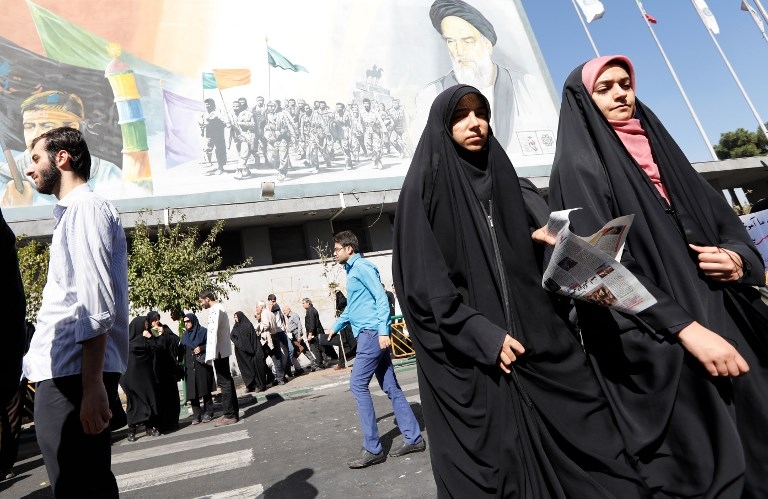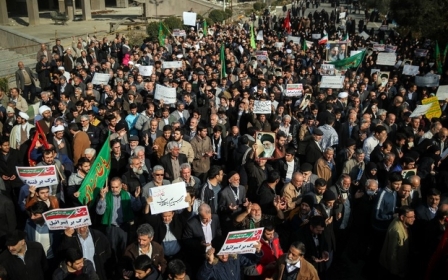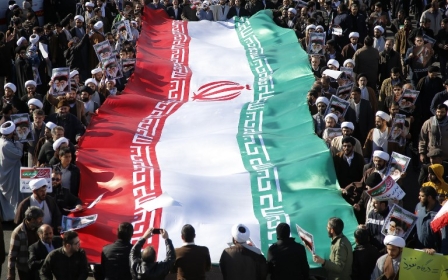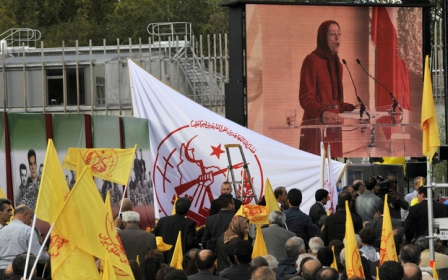Iranian police arrest 29 women over protests against compulsory hijab

Iranian police have arrested 29 women in the capital, Tehran, after they protested against a law that makes wearing the hijab compulsory.
Women across the country have been protesting by climbing onto telecom boxes, taking off their headscarves and waving them aloft on sticks.
Iran's Islamic law, imposed after the 1979 revolution, requires women to cover their hair and wear long, loose-fitting clothes in public. Six other women were also reportedly taken into custody this week.
Several images and videos of the demonstrations have gone viral on social media.
The protests have coincided with demonstrations against economic conditions in eastern Iran. Some have called for the country's supreme leader, Ayatollah Ali Khamenei, to step down.
Although women in Iran have fought against the hijab for nearly four decades, the new wave of protests has grabbed more attention and sparked a debate rarely seen before over personal freedoms.
Tehran police said on Thursday that the campaign had been instigated from outside Iran through illegal satellite channels.
“Following calls by satellite channels under a campaign called White Wednesdays, 29 of those who had been deceived to remove their hijab have been arrested by the police,” the semi-official Tasnim news, which is affiliated to the elite Revolutionary Guards, reported on Thursday.
The reformist Shargh newspaper covered the protests under the headline “Reactions to the removal of headscarves in the streets”.
Such discussions have rarely reached national newspapers, which operate under heavy censorship, but comments by judicial officials allowed Shargh to write about the matter.
Soheila Jolodarzadeh, a female member of the Iranian parliament, said the protests were the result of longstanding restrictions.
“They’re happening because of our wrong approach,” she said, according to the semi-official Ilna news agency.
“We imposed restrictions on women and put them under unnecessary restrains. This is why... girls of Enghelab Street are putting their headscarves on a stick.”
Iranian President Hassan Rouhani has not addressed the headscarf protest as of yet, but has said that the government needs to listen to the population better.
"We can't get anything done if we don't have the people behind us and ignore their criticisms," Rouhani said.
New MEE newsletter: Jerusalem Dispatch
Sign up to get the latest insights and analysis on Israel-Palestine, alongside Turkey Unpacked and other MEE newsletters
Middle East Eye delivers independent and unrivalled coverage and analysis of the Middle East, North Africa and beyond. To learn more about republishing this content and the associated fees, please fill out this form. More about MEE can be found here.




